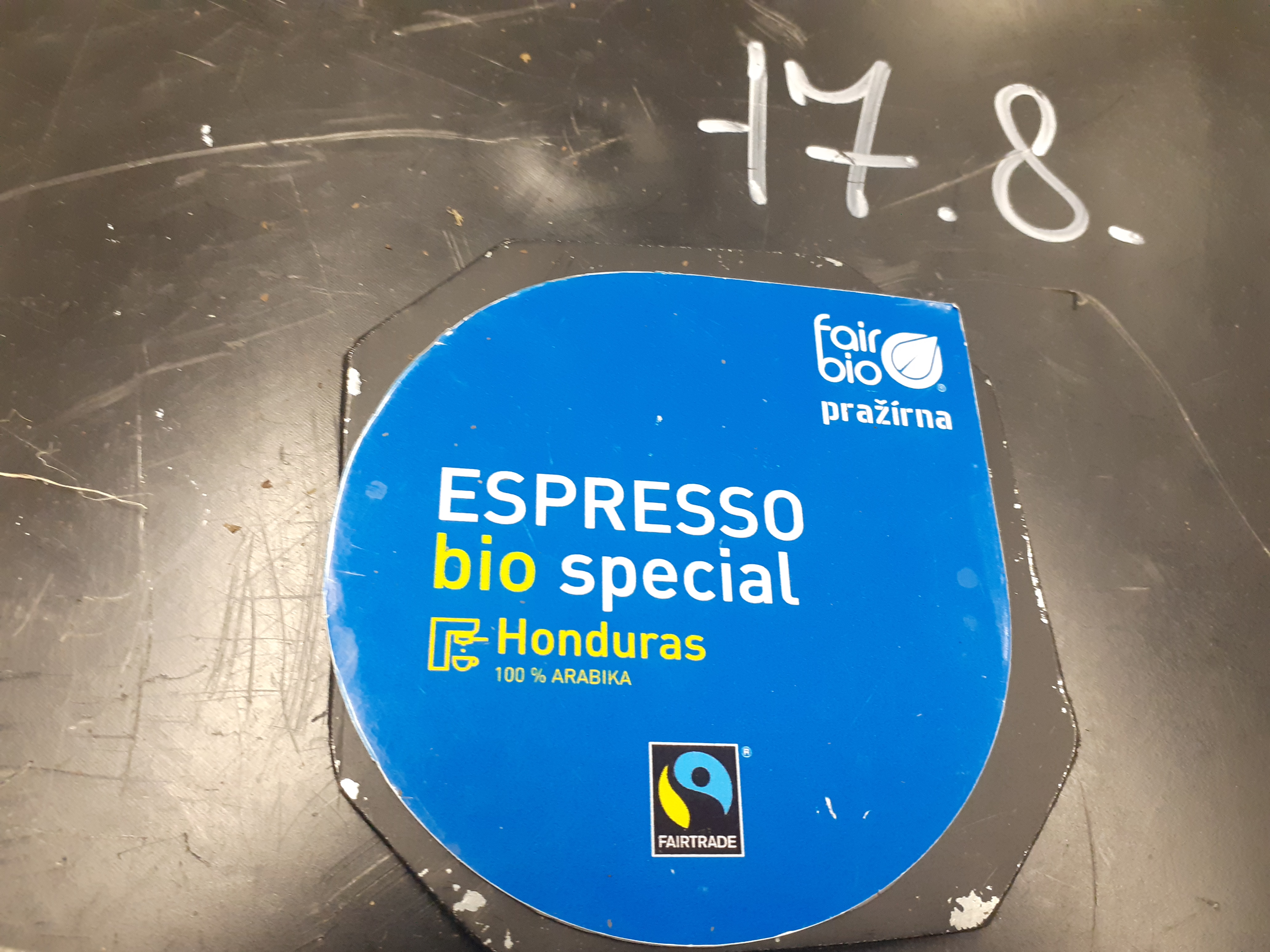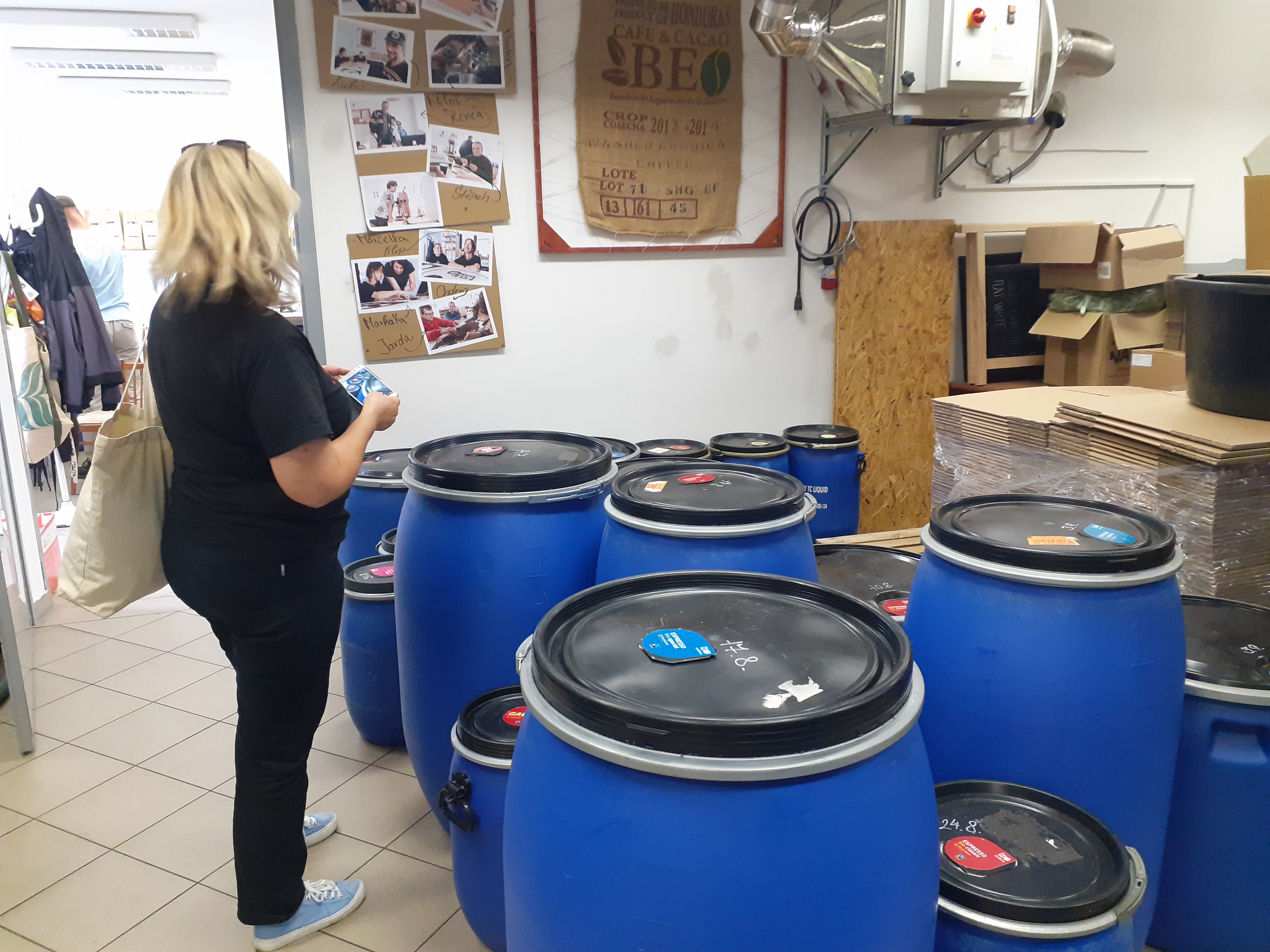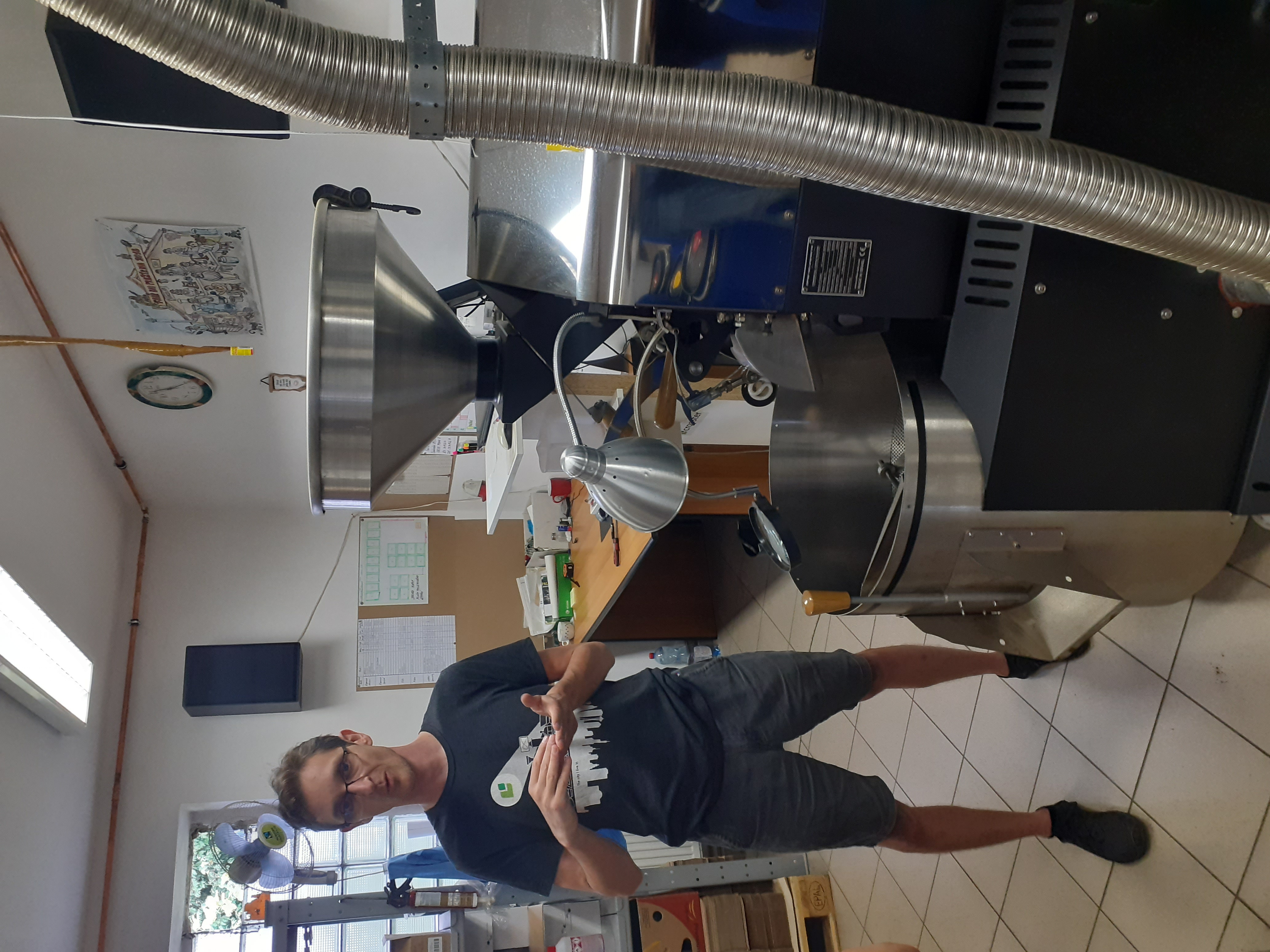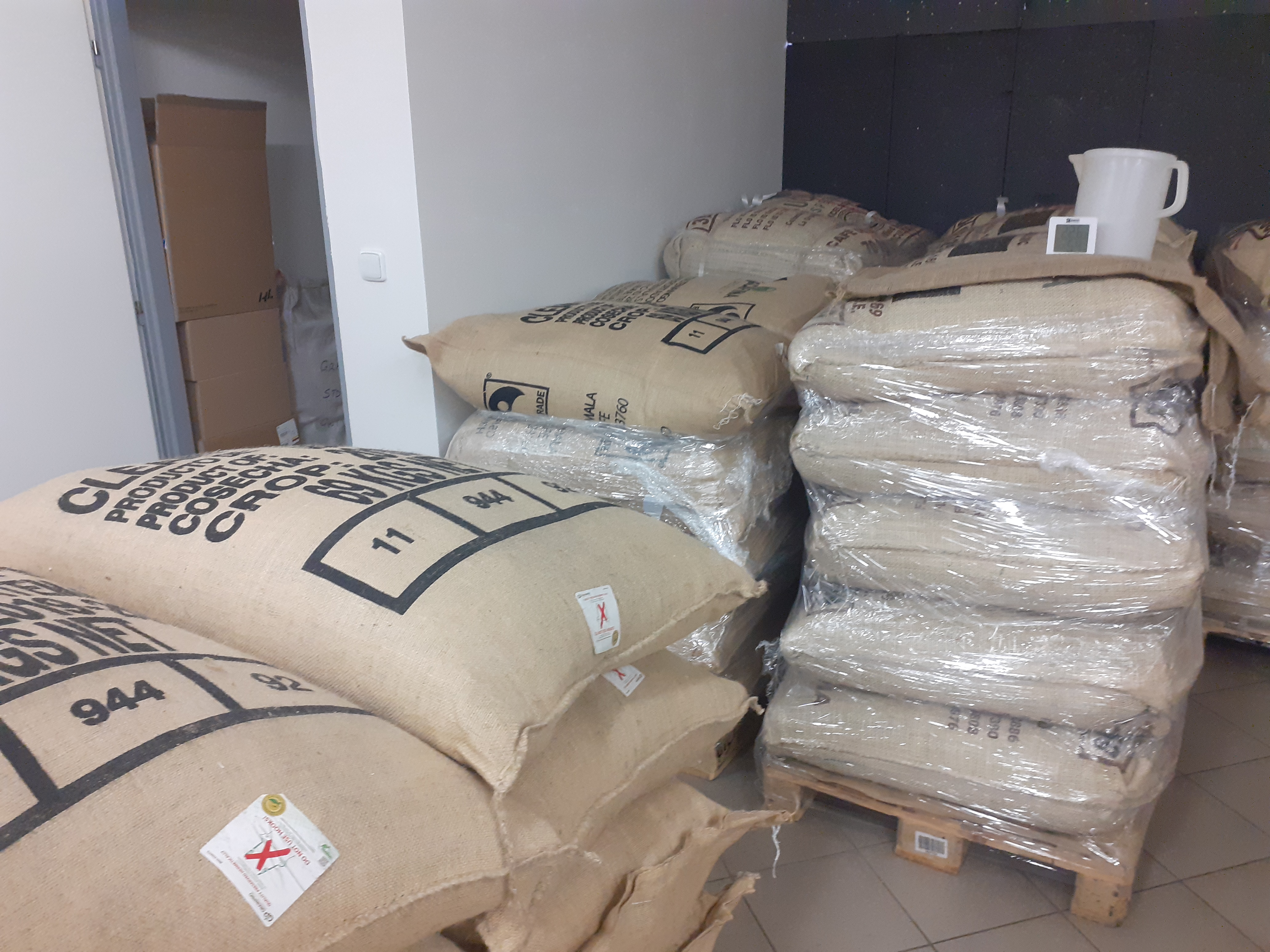Roastery - restart.utopia.sk
The coffee roasting house in Kostelec nad Labem employs people with disabilities
Andrea CerqueirováArriving at the yard where the Fair & Bio roastery is located, you don‘t need to follow signs on the doors; just follow the smell of roasted coffee. This cooperative social enterprise in Kostelec nad Labem, unique in the Czech Republic, roasts fair trade coffee grown under dignified conditions and gives work to people with disabilities. In the morning when “Náš REGION” visited, the roastery was scented with quality coffee and the atmosphere showed that everyone enjoyed working there.
First the paper bag gets a sticker glued on and it is stamped. The stamp contains not only the roasting date, but also the name of the employee who packed the coffee. Then the coffee is weighed, and eventually ground. This is the work of disadvantaged packers. “Some have been working here since the beginning, but we don't want to have training places here that would force people to look for another job over time. On the contrary, we provide them with long-term benefits, we offer higher than the minimum wage and we try to develop their skills, employees learn a lot. They have developed a lot, not only in terms of work habits as such, but also in terms of personal growth; they have gained responsibility. From the very beginning our intention was to have a good team here, to work in a pleasant atmosphere. And we are doing well,” says Martin Třešňák, the head of the roastery.
First the paper bag gets a sticker glued on and it is stamped. The stamp contains not only the roasting date, but also the name of the employee who packed the coffee. Then the coffee is weighed, and eventually ground. This is the work of disadvantaged packers. “Some have been working here since the beginning, but we don't want to have training places here that would force people to look for another job over time. On the contrary, we provide them with long-term benefits, we offer higher than the minimum wage and we try to develop their skills, employees learn a lot. They have developed a lot, not only in terms of work habits as such, but also in terms of personal growth; they have gained responsibility. From the very beginning our intention was to have a good team here, to work in a pleasant atmosphere. And we are doing well,” says Martin Třešňák, the head of the roastery.
They learned everything from scratch
“The roastery was established in 2013, thanks to a project from the European Union to support employment in the regions. We started from scratch, we learned everything from the beginning. We roasted the first coffee in January 2014, we had support from the program for two years. In retrospect, I know that at that time the coffee was not so good, we had to work on everything,” says Třešňák. He recalls starting with four employees as packers and one administrative assistant. Today, the cooperative, whose members are individuals and one legal person (Ecumenical Academy), employs eleven people, nine of them disabled, who take turns in the morning and afternoon shifts. The assistant helps and manages them at work. „Then there is me and a colleague, we take turns roasting. Several other positions are external,” adds Martin Třešňák. Last year they celebrated five years of their coffee and this summer it is seven years since the founding of the roastery.
Limited during the corona-crisis
During the state of emergency due to the spread of covid-19, the Fair & Bio roastery was operating, albeit in a limited mode, and was therefore not entitled to any compensation from the state. By law, social enterprises receive a contribution from the Employment Office of the Czech Republic for the wages of people with disabilities. “We are glad that we managed to keep the roastery without having to lay off people or reduce wages. We had reserves from previous years. While we routinely transport coffee to companies, shops and restaurants, at this time it was mainly people's homes. We worked hard to improve our online sales, so we achieved at least half of last year's sales. Of course, this is not sustainable in the long run, but fortunately - compared to other operations - we were not entirely out of business,” says Třešňák. Štěpán, who works as a packer in the roastery, told “Náš REGION” that he could not go to work at this critical time, as he had to stay in the facility where he lives. All the time he was looking forward to being back among his colleagues and fragrant coffee.
Responsible business with added value
The roastery is processing green coffee which comes to the Czech Republic with Fairtrade certification and the vast majority of which is organic. “We run a responsible business not only by employing disadvantaged people, but also with added value. Thanks to Fairtrade-certified coffee, we have guarantees that not many dealers participate in the process, there is no child labor in the production and the certification authority acts as a third-party control mechanism,” explains Třešňák. “We do not have the logistics necessary to buy coffee directly from growers, but we buy it from partners in Europe who prove who they bought it from. There are at most two to three entities between the producer and us,” he adds. Thanks to the “bio” (organic) label, they take into account the environmental aspect. He and a colleague oversee roasting coffee in a roaster, a sophisticated process that requires expensive appliances. "It's the hardest thing we've learned here. As I have already indicated, from the beginning it was learning by trial and error, just like many other roasters started, but now we have grasped it,” Martin Třešňák says with a smile.
We still enjoy the taste
Coffee can be roasted in several ways. While dark roasting, which gives coffee a more bitter taste, is most common in the Czech Republic, light roasting is also popular, as it lets fruit and flower tones stand out. The roastery processes beans from many countries and different continents, especially from Africa and Latin America, where decaffeinated coffee also comes from. It is produced by a gentle natural method without chemicals, the so-called water process. After all those years, is this drink still tasteful to those who are surrounded by coffee every day? “We love it, we all drink it here, except for one employee, Ondra, who is vigorous enough without it. He is a successful athlete; last year, for example, he brought a gold medal in swimming from the Special Olympics,” says Třešňák. “I just sometimes think that I will have cut down on coffee, because too much of it isn’t good for the stomach,” he adds.
Czech version of this article was published in local newspapers Náš region (https://nasregion.cz/, printed and online version: https://nasregion.cz/stredocesky-kraj/prazirna-kavy-v-kostelci-nad-labem-zamestnava-lidi-se-zdravotnim-znevyhodnenim/)
Czech version of this article was published in local newspapers Náš region (https://nasregion.cz/, printed and online version: https://nasregion.cz/stredocesky-kraj/prazirna-kavy-v-kostelci-nad-labem-zamestnava-lidi-se-zdravotnim-znevyhodnenim/)




Photo by Utopia.
